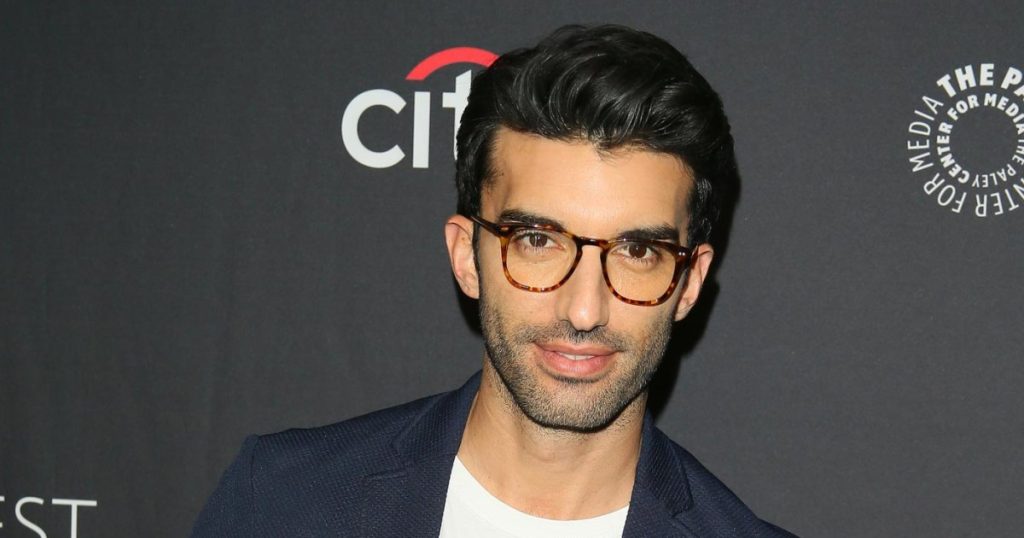Justin Baldoni, director of the film “It Ends With Us,” has found himself embroiled in controversy surrounding his past relationship with pornography and allegations of creating a hostile work environment on set. Years before facing a lawsuit filed by his “It Ends With Us” co-star, Blake Lively, Baldoni openly discussed his struggles with pornography, tracing its roots back to his childhood. In a 2021 podcast interview, he revealed being exposed to pornography at the tender age of ten, long before he fully understood its implications. He described the initial fascination stemming from the sexualization of the human body, amplified by the onset of puberty. Baldoni confessed that pornography became a coping mechanism, a source of dopamine-induced relief during times of emotional distress, loneliness, or abandonment. He acknowledged the unhealthy nature of this dependence, recognizing that he resorted to viewing explicit material when feeling negatively about himself, even against his own better judgment.
Baldoni’s exploration of masculinity and its complexities extended beyond personal reflection. In his book, “Man Enough: Undefining My Masculinity,” he delved into the pervasive influence of pornography on young men’s understanding of consent. He expressed concern about the violent nature of much of the pornography consumed by young boys, arguing that its absence from open discussions about consent contributes to a distorted perception of sexual interactions. Baldoni posited that this exposure could lead to a generation of boys misinterpreting a woman’s “no” or expressions of pain as signs of encouragement or pleasure, a dangerous misinterpretation with far-reaching consequences. This prior public acknowledgement of his past struggles with pornography has become a focal point in the recent allegations against him.
The lawsuit filed by Blake Lively in December 2024 alleges that Baldoni’s behavior on the set of “It Ends With Us” created a hostile work environment, causing her severe emotional distress. Lively’s claims paint a picture of inappropriate behavior involving the display of nude videos and images of women, discussions of sexual conquests, inquiries about Lively’s weight, and references to her deceased father. These actions allegedly disregarded a prior meeting held to address Lively’s concerns about the work environment, a meeting also attended by her husband, Ryan Reynolds. The lawsuit details Lively’s demands for a more professional atmosphere, including a cessation of the aforementioned behaviors and a halt to discussions about Baldoni’s alleged “pornography addiction.” The clash between Lively’s demands and the alleged continuation of the offensive behavior forms the core of the legal dispute.
Baldoni’s lawyer, Bryan Freedman, has vehemently denied Lively’s accusations, labeling them as “completely false, outrageous, and intentionally salacious.” Freedman contends that Lively filed the lawsuit as a means of rehabilitating her own image and perpetuating a negative narrative surrounding the film’s production. He further alleges that Lively engaged in disruptive behavior on set, including threats of non-attendance and refusal to promote the film unless her demands were met. This counter-narrative presents a drastically different interpretation of events, portraying Lively as the instigator of conflict, using threats to exert control over the production. The conflicting accounts create a complex legal battle, with each side presenting contrasting versions of the truth.
The situation is further complicated by accusations of retaliatory tactics. Lively has stated that she hopes her legal action will expose such tactics used against individuals who speak out about misconduct, thereby protecting others from similar experiences. She denies Freedman’s claims of spreading negative information about Baldoni, asserting her intention to address the alleged misconduct directly. This claim of retaliation adds another layer to the already intricate legal battle, raising questions about the motivations behind both the lawsuit and Baldoni’s legal response. The case highlights the complexities of navigating accusations of misconduct in the entertainment industry, particularly when intertwined with deeply personal histories and conflicting narratives.
The ongoing legal proceedings will likely delve further into the specifics of the alleged behavior, the extent of Lively’s distress, and the veracity of the competing narratives presented by both parties. The case brings to the forefront the sensitive issue of creating a safe and respectful work environment in the entertainment industry, particularly in the context of past personal struggles and the potential for those struggles to impact professional conduct. The outcome of this lawsuit could have significant implications for how such situations are handled in the future, influencing industry standards and potentially prompting greater scrutiny of on-set behavior. The clash between Lively’s allegations and Baldoni’s denials creates a complex legal battle, with the truth likely residing somewhere within the nuanced and conflicting narratives presented by both sides.



